The latest meeting of the UCU Business School Alumni Book Club took place on July 30 at the “Sofiivskyi Skhyl” location in Vynnyky, hosted by Key Executive MBA graduate Father Rostyslav Penduk.
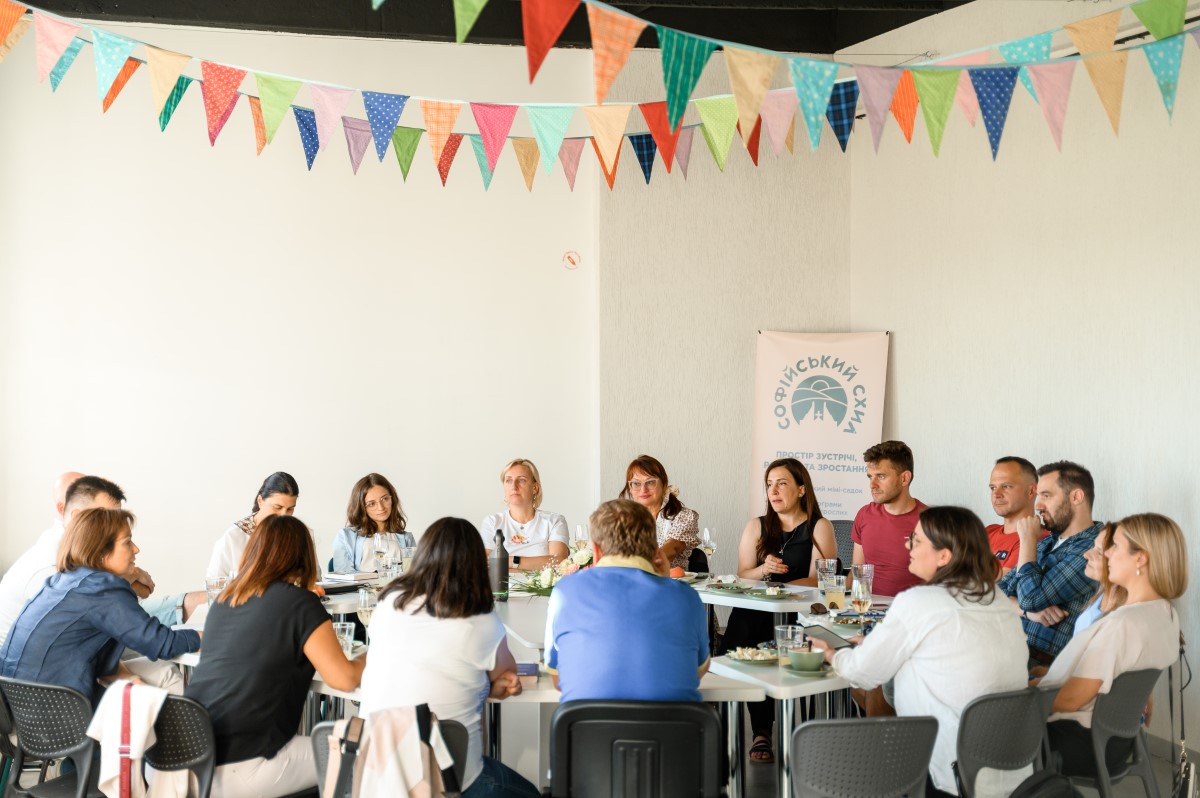
How was this book chosen from among others?
Each year, the reading list is selected by Book Club participants based on a long list of recommendations from experts in various fields. This year, the participants decided to read books of different genres and eras, and when it was time to choose a classic dystopia, they unanimously picked Huxley’s Brave New World.
Aldous Huxley was a brilliant 20th-century intellectual, writer, and philosopher. He wrote novels, essays, poems, travelogues, and screenplays. One of his most famous works is Brave New World, published in 1932. In his works, Huxley explored themes of science, philosophy, religion, and human nature, constantly questioning societal norms.
Brave New World is a dystopian novel depicting a future society where technology and science have greatly influenced human life. In this world, people are artificially grown in incubators, and from birth, their place in the societal hierarchy is predetermined. Emotions, individuality, and personal connections are controlled and regulated. Happiness is achieved through consumption, entertainment, and special drugs.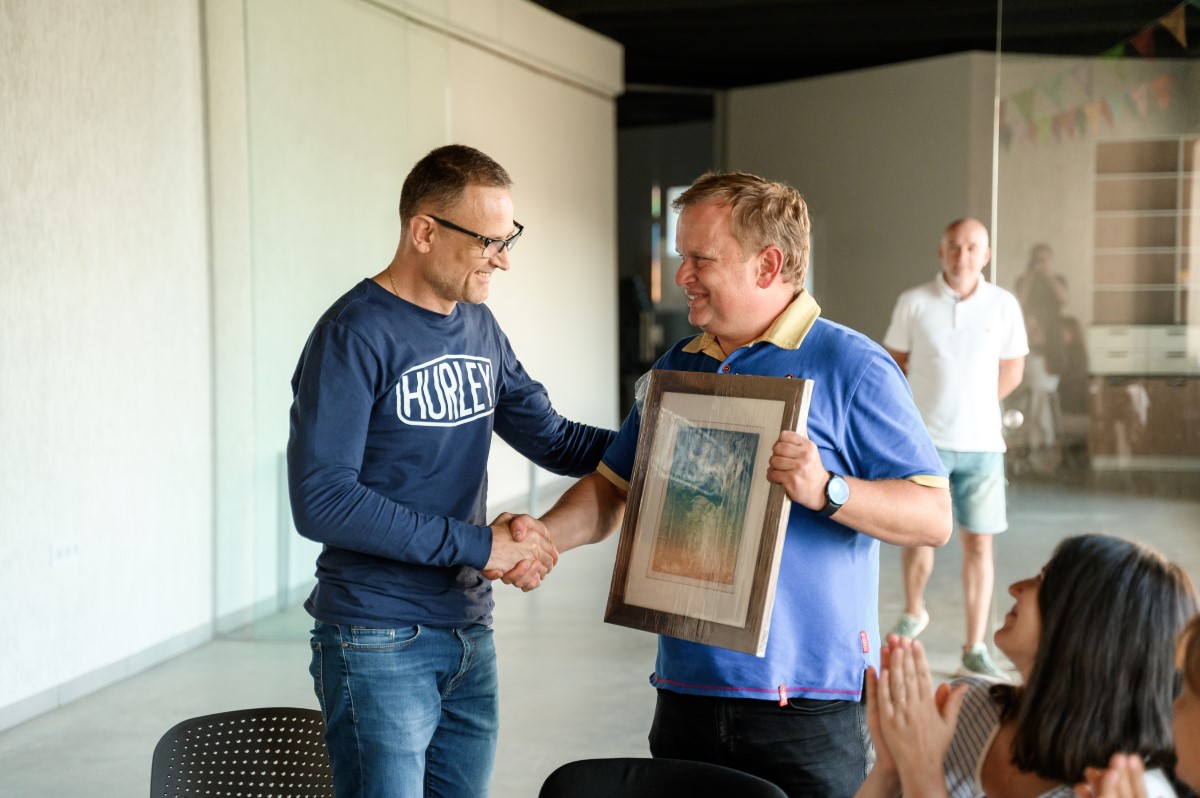
What conclusions did the participants reach?
During the discussion, participants agreed that Huxley’s Brave New World is not only a captivating literary work but also a profound philosophical exploration of society, technology, and human values.
Some quotes from the novel seemed particularly relevant today and resonated with the club members:
On choosing between technology and spirituality: “God is not compatible with machinery, scientific medicine, and universal happiness. You have to make your choice. Our civilization has chosen machinery, medicine, and happiness.”
On the value of the individual: “And what, after all, is an individual? We can make more of them whenever we like. Unorthodoxy threatens more than the life of a mere individual; it strikes at Society itself.”
On the absence of the need for heroism: “A civilized man does not need to suffer anything seriously unpleasant. And as for doing things on their initiative—Ford forbid! If people started doing things on their initiative, the social order would be in danger. No, in a properly organized society like ours, nobody has any opportunities for being noble or heroic.”
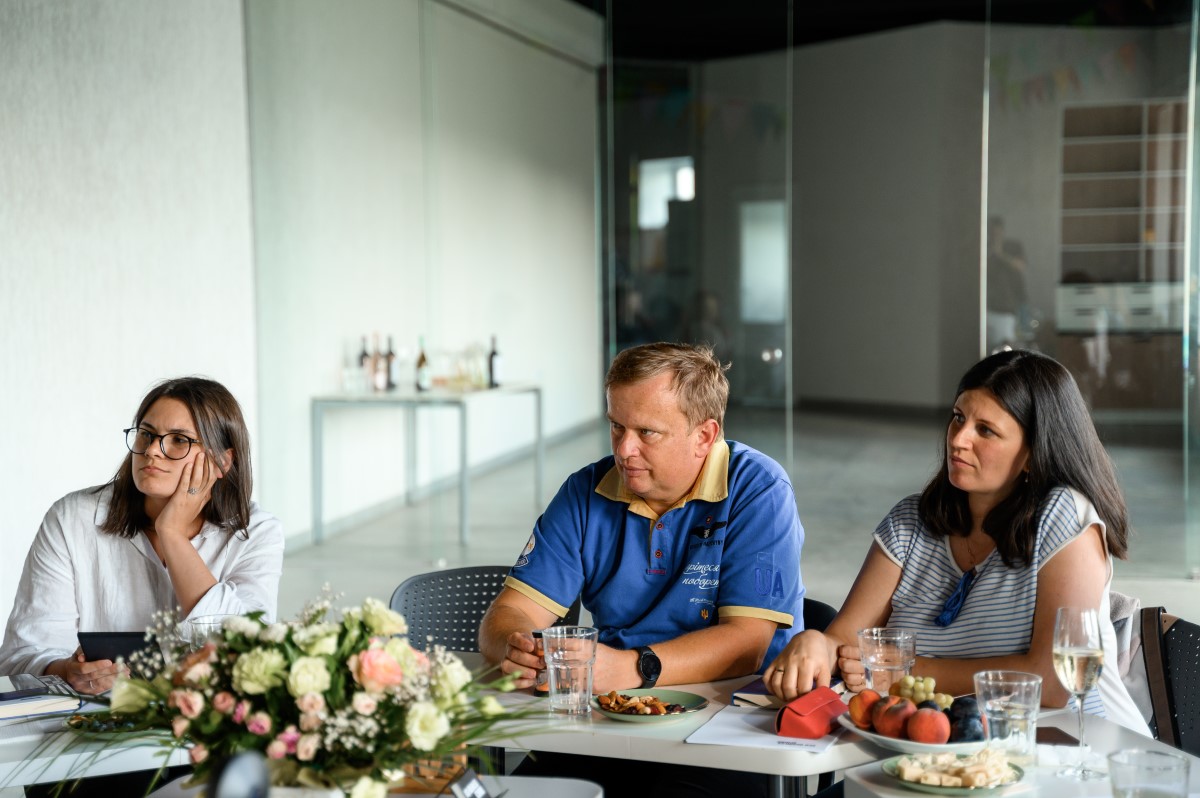
The participants shared their reflections and thoughts on what they had read:
“You can’t reduce life to just satisfying your inner instincts. This book provides a concentrated depiction of the kind of decision-making authoritarian countries have sought throughout history.”
“We live in a similar society today, where there are Alphas, and Epsilons lament their lives and teach their children to do the same. However, only a few can escape this way of life.”
“To be human means having a spectrum of emotions, but at the same time, life cannot be reduced to satisfying internal desires. Pain and suffering are an inherent part of life, as they make us human.”
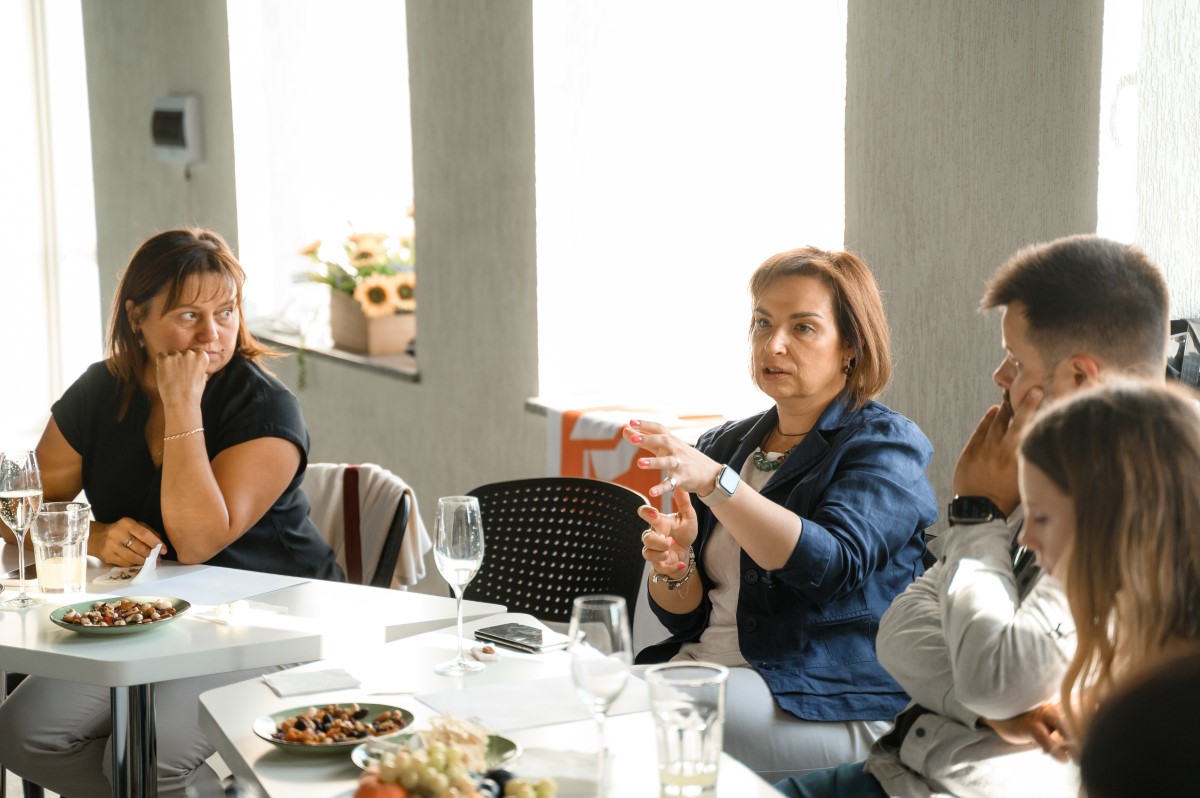
Why this location?
One of the unique aspects of the Book Club meetings is visiting the business spaces of alumni and getting acquainted with their ventures. In developing “Sofiivskyi Skhyl,” Father Rostyslav involved his classmates and colleagues from UCU Business School to gain their valuable advice and perspectives, and now he had the opportunity to show the result of their long collaboration.
“Sofiivskyi Skhyl” is a great example of engaging the local community in creating a shared project. As Father Rostyslav noted, “Everything done on the church grounds was realized solely by the efforts and funds of the parishioners, without grants.” The concept of building the shrine and the surrounding space is particularly interesting: instead of the traditional approach where the church is built first, and people are then invited, the parish decided to involve people first and then collectively develop the space.
The grounds feature a café popular among young people, families, and coffee lovers. Additionally, a summer camp operates on-site, hosting poetry and music evenings, movie screenings, and meetings with interesting people. This year alone, around 400 children participated in the summer camps, each staying for two weeks.
To provide children with a space for activities, construction has begun on a separate pavilion. The unique feature of the project is the plan to make the building fully autonomous from external energy sources through the installation of solar panels on the roof. The investors in this initiative are the parish families who have each purchased one of the panels.
After learning about Father Rostyslav’s project, the club members moved on to discussing the author and his book.
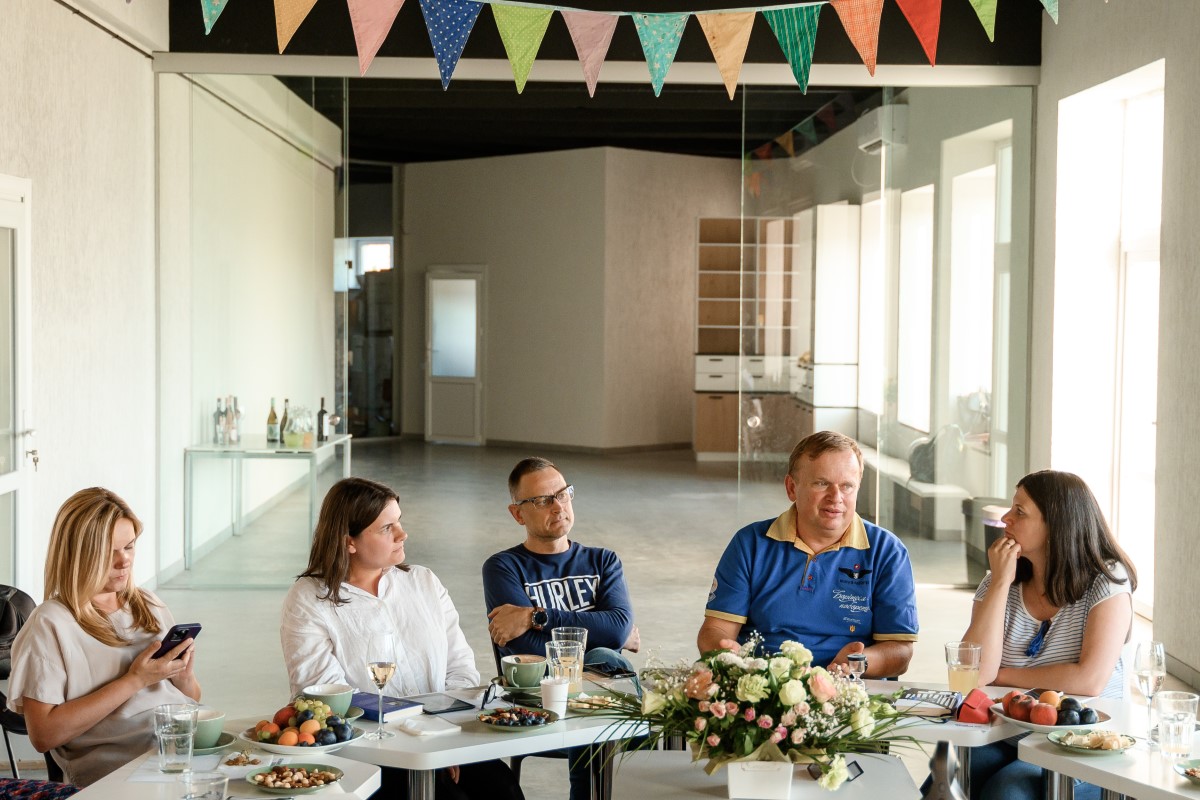
Father Rostyslav Penduk shared his impressions of the meeting: “I’m glad we can bring together inspiring people in an inspiring place. The UCU Business School Alumni Book Club is a breath of fresh air because here you can reflect, debate, dive deep, and feel comfortable doing so.”
Оlena Sozanska, the moderator of the meeting, initiator of the project, and a graduate of the Key Executive MBA program commented: “We reflected a lot on how what Huxley wrote in 1931 is already happening in our world today, perhaps in more veiled and simplified forms. Despite the ‘simplicity’ and ‘all-encompassing happiness,’ that world lacks the value of human life. It is devoid of suffering and pain, which are essential parts of human evolution; loneliness, as a chance to reflect and generate thoughts and ideas; the freedom to choose who to be and what to do; the right to express your opinion and be different; science, reading, and art, which are the cornerstones of civilization; and love, in all its forms and manifestations.”
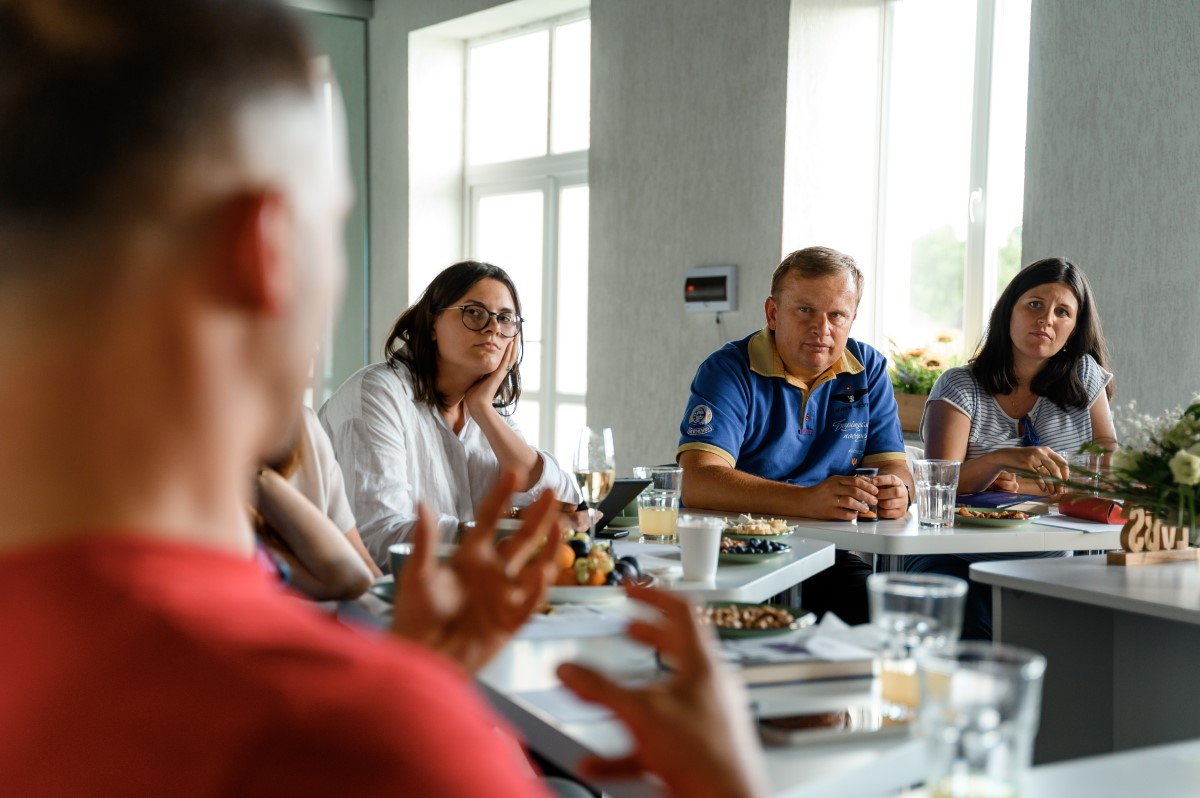
A reminder about the Book Club’s mission
The Book Club aims to unite UCU Business School alumni and participants of the master’s programs around reading and reflecting on literature, primarily business literature, but not exclusively, with the involvement of experts and in a club format under the Alumni LvBS banner. It’s also an opportunity for Alumni to engage in lifelong learning and personal development.
The Book Club operates on an ongoing basis, with meetings held every month and a half. The books are selected by club members from a list that is compiled based on recommendations from alumni, school faculty, global bestsellers, and top books in various fields. The meeting locations are typically at the companies of LvBS alumni, combining the format with an Alumni company visit. The club is open to LvBS master’s program graduates, and guests may include current LvBS students and invited experts.
Details about how the Club meetings take place can be found in the Memorandum. We are open to location suggestions for future meetings from you, our alumni, via form. We invite all alumni and participants of UCU Business School master’s programs to join us.




















